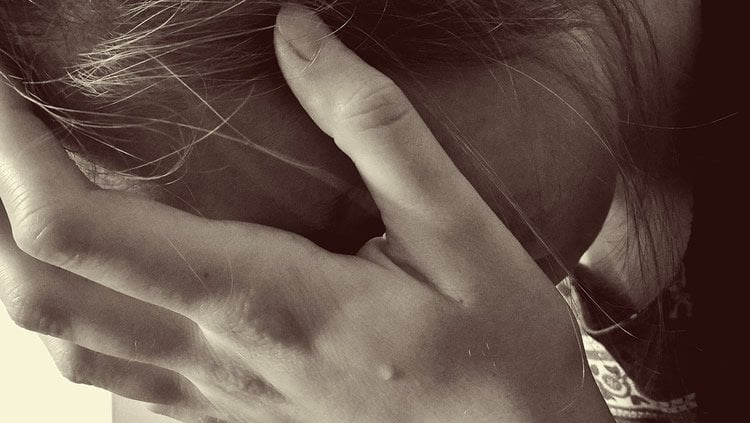Summary: Stress causes gut microbiota composition to shift as though a female mouse is on a high fat diet, researchers report.
Source: Brigham Young University.
We all know that a poor diet is unhealthy, but a new BYU study finds that stress may just as harmful to our bodies as a really bad diet.
In a new paper published in Nature Scientific Reports, BYU professor of microbiology and molecular biology Laura Bridgewater found that when female mice were exposed to stress, their gut microbiota — the microorganisms vital to digestive and metabolic health — changed to look like the mice had been eating a high-fat diet.
“Stress can be harmful in a lot of ways, but this research is novel in that it ties stress to female-specific changes in the gut microbiota,” Bridgewater said. “We sometimes think of stress as a purely psychological phenomenon, but it causes distinct physical changes.”
Bridgewater and her collaborators at Shanghai Jiao Tong University in China took a large group of 8-week-old mice and exposed half of the males and half of the females to a high-fat diet. After 16 weeks, all of the mice were exposed to mild stress over the course of 18 days.
Researchers then extracted microbial DNA from the mice fecal pellets before and after the stress to test how the gut microbiota was affected. They also measured mouse anxiety based on how much and where the mice traveled in an open field arena.
The researchers found fascinating differences between genders: Male mice on the high-fat diet exhibited more anxiety than females on the high-fat diet, and high-fat males also showed decreased activity in response to stress. However, it was only in female mice that stress caused the gut microbiota composition to shift as if the animals were on a high-fat diet.
While the study was only carried out on animals, researchers believe there are could be significant implications for humans.

“In society, women tend to have higher rates of depression and anxiety, which are linked to stress” said Bridgewater, who also serves as Associate Dean of the BYU College of Life Sciences. “This study suggests that a possible source of the gender discrepancy may be the different ways gut microbiota responds to stress in males vs. females.”
BYU’s Chenhong Zhang served as an author on the paper. Liping Zhao, Shengtian Li, Jing Wang, Qianpeng Zhang, Weiwei Hu and Yanqui Wu of Shanghai Jiao Tong University also contributed to this study.
Source: Todd Hollingshead – Brigham Young University
Publisher: NeuroscienceNews.com.
Image Source: NeuroscienceNews.com images is in the public domain.
Original Research: Full open access research for “Gender-based differences in host behavior and gut microbiota composition in response to high fat diet and stress in a mouse model” by Laura C. Bridgewater, Chenhong Zhang, Yanqiu Wu, Weiwei Hu, Qianpeng Zhang, Jing Wang, Shengtian Li & Liping Zhao in Scientific Reports. Published online September 7 2017 doi:10.1038/s41598-017-11069-4
[cbtabs][cbtab title=”MLA”]Brigham Young University. “Stress May Be Just As Unhealthy As Junk Food To Digestive System.” NeuroscienceNews. NeuroscienceNews, 16 October 2017.
<https://neurosciencenews.com/stress-digestive-system-7747/>.[/cbtab][cbtab title=”APA”]Brigham Young University. (2017, October 16). Stress May Be Just As Unhealthy As Junk Food To Digestive System. NeuroscienceNews. Retrieved October 16, 2017 from https://neurosciencenews.com/stress-digestive-system-7747/[/cbtab][cbtab title=”Chicago”]Brigham Young University. “Stress May Be Just As Unhealthy As Junk Food To Digestive System.” https://neurosciencenews.com/stress-digestive-system-7747/ (accessed October 16, 2017).[/cbtab][/cbtabs]
Abstract
Gender-based differences in host behavior and gut microbiota composition in response to high fat diet and stress in a mouse model
Obesity is associated with a high prevalence of mood disorders such as anxiety and depression. Both stress and high fat diet can alter the gut microbiota and contribute to obesity. To examine the interrelationships between obesity, stress, gut microbiota and mood disorders, obesity was induced in mice using a high fat diet, and the mice were subsequently stressed using a chronic unpredictable mild stress protocol. During the experiment, the composition of the gut microbiota was analyzed by 16 S rRNA gene high-throughput sequencing, and anxiety-like behaviors were measured. The results revealed distinct gender differences in the impacts of obesity and stress on anxiety-like behaviors, activity levels, and composition of the gut microbiota. Male mice were more vulnerable to the anxiogenic effects of the high fat diet, and obese male mice showed decreased locomotion activity in response to stress whereas obese female mice did not. In females, stress caused the gut microbiota of lean mice to more closely resemble that of obese mice. Taken together, these results suggest the importance of considering gender as a biological variable in studies on the role of gut microbiota in obesity-related mood disorders.
“Gender-based differences in host behavior and gut microbiota composition in response to high fat diet and stress in a mouse model” by Laura C. Bridgewater, Chenhong Zhang, Yanqiu Wu, Weiwei Hu, Qianpeng Zhang, Jing Wang, Shengtian Li & Liping Zhao in Scientific Reports. Published online September 7 2017 doi:10.1038/s41598-017-11069-4






